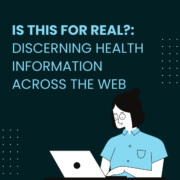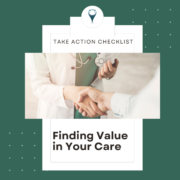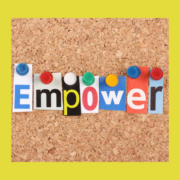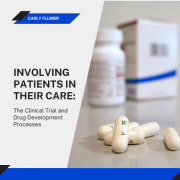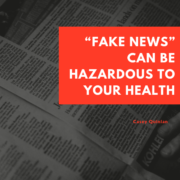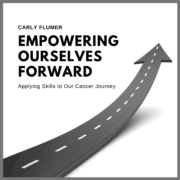Is This for Real? Discerning Health Information Across the Web
Googling something is easy. Researching a topic and finding well-sourced, credible information is another story, especially in the healthcare sector. As we’ve learned through the pandemic, there’s a ton of health information on the internet and other forms of media, including television, social media, advertisements, and video that competes for our attention. Unfortunately, it’s up to us to determine what is “true vs. false,” to be able to apply it to our lives and potentially share with others, including family members, friends, support group members, and our healthcare staff.
How do we discern health information that’s fact vs fiction when we’re looking at different sources?
Where is the information coming from? Try looking for:
- Websites that end in .edu, .gov, and .org (i.e. Centers for Disease Control, National Institutes of Health, National Cancer Institute, American Institute for Cancer Research)
- Peer-reviewed medical journals
- Google Scholar
- Major news sources
- Wikipedia can be a good source for basic information. Use the references section at the bottom, too
- Information that is current (I.e. within the last 5 years)
Additional websites that are reviewed by physicians and other healthcare professionals:
- Mayo Clinic
- Cleveland Clinic
- Johns Hopkins
- DailyMed
- PubMed
- MedlinePlus
- Everyday Health
- Familydoctor.org
Social media is a good place to make friends and join support groups that consist of other people with the same disease
- Sharing health information about different experiences, including symptoms and side effects can be a great way to learn about different aspects of the disease you may have not considered or heard about
- However, remember that people’s experiences are purely anecdotal and every patient is different. This can be true of blogs and other healthcare websites
- If you find information that may be relevant to you and/or that you may be concerned about, share it with your healthcare team
Carly Flumer is a young woman who was diagnosed with stage I papillary thyroid cancer at the age of 27. She recently received her Master’s degree from Boston University in Health Communication and received her Bachelor’s from George Mason University in Health Administration and Policy. While being diagnosed with the “C” word at such a young age was a surprise, as it would be to anyone, she found strength, support, and inspiration in sharing her cancer journey on social media. As a result of her health outcome, she looks to advocate for other cancer patients through education, research, and health literacy.

